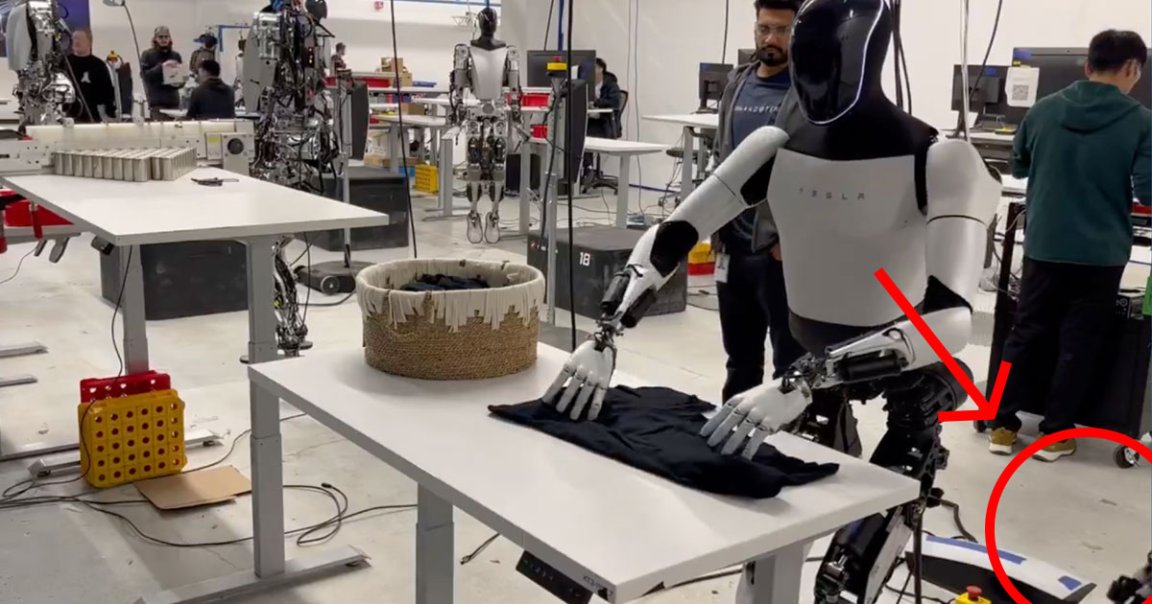
Robot Trickery
Tesla CEO Elon Musk has posted a video of the company’s latest-generation Optimus humanoid robot painstakingly folding a shirt on a table.
But there’s one glaring problem: it needed a substantial amount of help, as eagle-eyed viewers quickly pointed out — and which Musk himself admitted after criticism.
“Optimus folds a shirt,” Musk wrote in the caption of his initial video posted to his social media network X. The clip shows Optimus pulling a T-shirt out of a nearby basket and carefully folding it.
But viewers quickly spotted a gloved hand in the bottom right of the video, strongly suggesting the robot was being directly controlled by a nearby engineer.
“Important note: Optimus cannot yet do this autonomously, but certainly will be able to do this fully autonomously and in an arbitrary environment,” the self-anointed “chief troll officer” added in a follow-up tweet just over 20 minutes later.
It’s unclear if Musk posted his follow-up in reaction to users pointing out the trickery, or whether he was planning to post it regardless. Either way, it’s not exactly a good look, given Musk’s tendency to contort the truth.
Bipedal Babysitter
It’s an important distinction, as remotely operated humanoid robots have been around for many decades. A mechanically deft robot is neat, sure, but economically pointless if it needs a human laborer operating it.
In other words, Tesla still has a considerable amount of work left to do for its robot to adapt to an “arbitrary environment” — which is striking given all of Musk’s big talk about AI.
The contrast is especially great when Optimus is pitted against competing humanoid robots such as Boston Dynamics’ bipedal robot Atlas, which can help out construction workers and deftly play a game of “the floor is lava.”
Musk overpromising and underdelivering is nothing new. The real yardstick, which he conveniently ignored in his original tweet, is what such a robot is capable of doing on its own.
Tesla is aiming to have Optimus be “capable of performing tasks that are unsafe, repetitive or boring.” Needing a human to perform those same tasks to remotely control the robot couldn’t be further from that vision.
More on Optimus: Tesla Unveils New Humanoid Robot